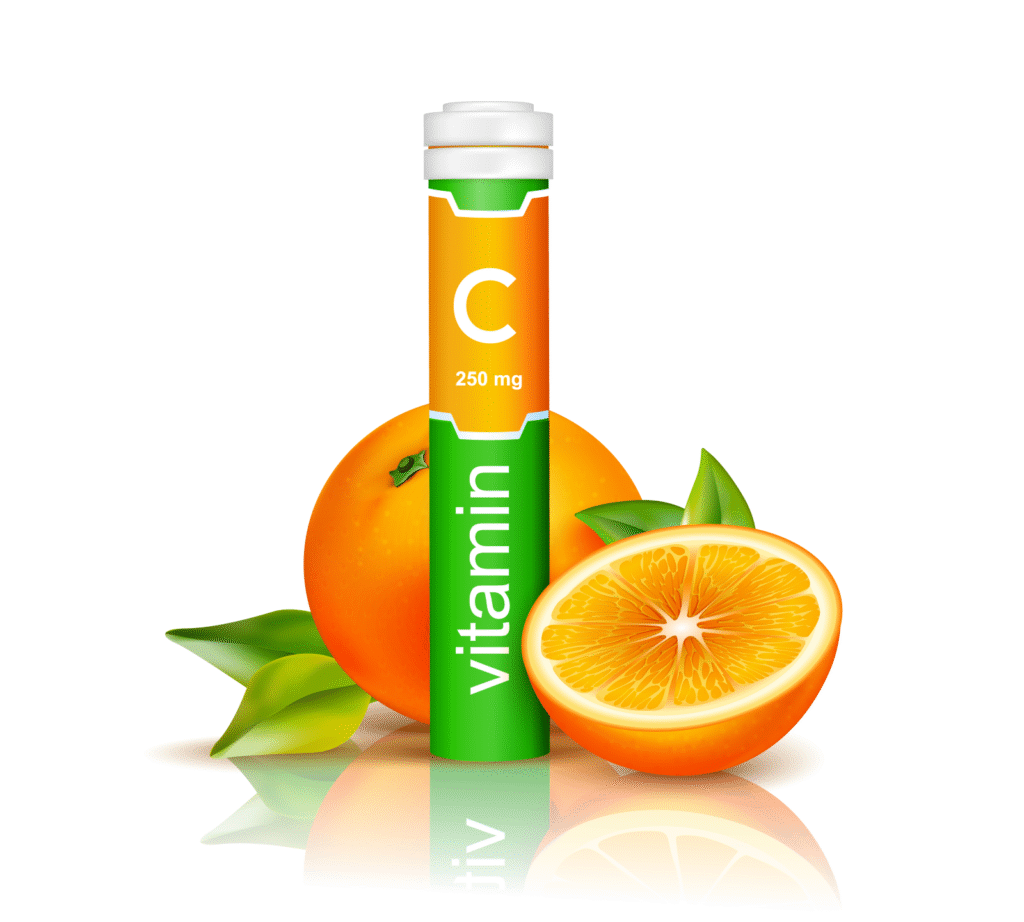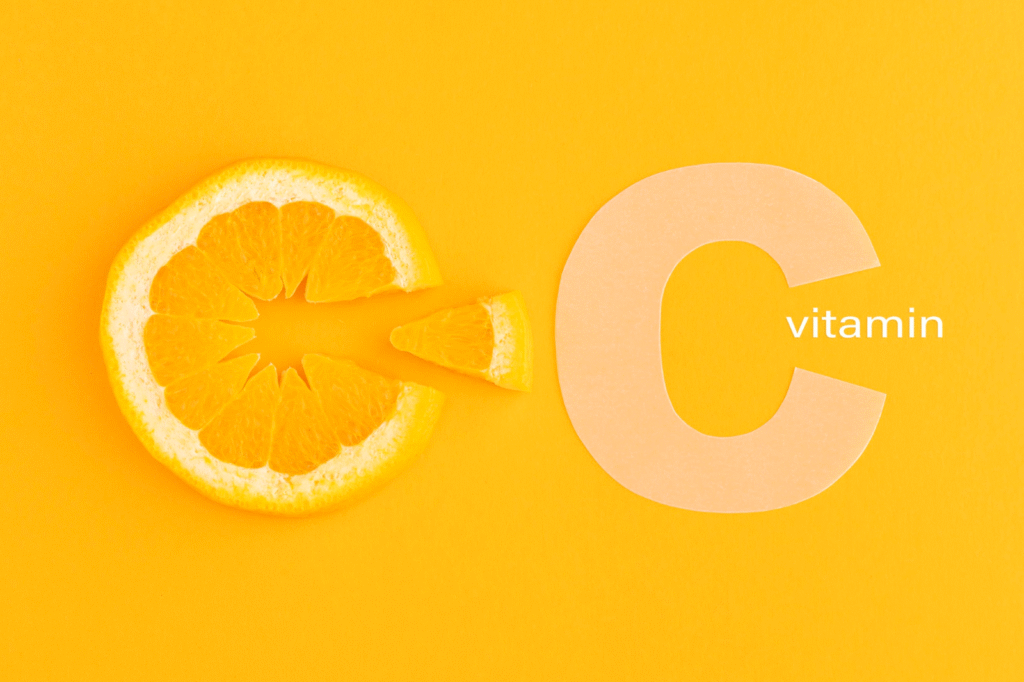How Much Vitamin C To Take When Sick: What Experts Recommend

When sniffles strike and energy goes down, many instinctively reach for Vitamin C, wishing it will be the quick fix to bounce back quicker.
Beyond the age-old myths and celebrity endorsements lies a complex nutrient that plays a subtle yet important role in supporting the immune system. Scientists have revealed the layers of its impact and found that timing, dosage, and individual factors determine its true benefits.
Taking too little may not do anything, whereas too much may lead to potential side effects. Understanding these subtle differences can make vitamin C a hopeful remedy while sick.
Let’s find out what research-based experts advise you in terms of Vitamin C consumption when you’re feeling under the weather.
What Is Vitamin C and Why Is It Popular During Sickness?
Vitamin C, or ascorbic acid, is a vital nutrient that plays a vital role in many body functions like collagen synthesis, antioxidant defense, and immune system protection.
Since it supports the health of the skin, blood vessels, and immune cells, Vitamin C has become popular as a natural barrier against infections, especially the common cold. It was in the 1970s when the concept of Vitamin C being capable of preventing or curing colds achieved momentum after Nobel laureate Lincoln Pauling recommended high-dose supplementation.
Recommended Daily Intake of Vitamin C for Healthy Adults

When it comes to general health, the Recommended Dietary Allowance (RDA) for Vitamin C is 75 mg per day for adult women and 90 mg per day for adult men. These quantities can easily be achieved with a balanced diet rich in fruits and vegetables like oranges, strawberries, bell peppers, and broccoli.
These RDAs are geared toward preventing deficiency and primary health as opposed to treating illness.
Most people wonder how much Vitamin C to take when sick to enhance their recovery and alleviate symptoms, with many considering doses above the normal recommendations for therapeutic effects. Well, let’s understand how much vitamin C is appropriate to consume when not feeling well.
How Much Vitamin C Should You Take When You’re Sick?
Regarding illness, especially colds, studies show that Vitamin C supplementation can modestly cut down on symptom duration and intensity, especially when taken consistently, pre-illness.
But timing and dosage are important.
· Preventive Use
For ongoing immune support, some professionals advise daily supplementation of 200 mg to 1,000 mg of Vitamin C. This range exceeds the RDA but is considered safe and possibly beneficial for people exposed to high physical or environmental stress.
· During Illness

Once symptoms of a cold appear, the intake of Vitamin C can be increased to around 1,000 mg to 2,000 mg daily to shorten the duration of symptoms by about one or two days. Clinical studies reveal that this effect is more apparent in some than others.
· Dosage Limits and Side Effects
The Tolerable Upper Intake Level (UL) of Vitamin C is 2,000 mg per day for an adult. Consuming more than this may lead to side effects, such as stomach cramps, diarrhea, and nausea. Thus, mega-dosing way above this limit is not recommended without medical supervision.
Forms of Vitamin C and How to Take It
Vitamin C supplements may take the form of tablets, chewables, powders, and liquid drops. Liposomal Vitamin C is a new form that may enhance absorption, though further studies are required to determine its effectiveness over traditional supplements.
Regular consumption of Vitamin C, during meals, can prevent stomachaches. In addition, getting Vitamin C from whole foods along with supplements is able to offer the body more nutrients and fiber necessary for overall good health.
Vitamin C and Its Role in Immune System Function
Vitamin C plays various important roles in immune support. It triggers the production and function of white blood cells, which are important in fighting infections.
It also acts as a powerful antioxidant, protecting immune cells from damage caused by harmful free radicals produced during illness or stress. Furthermore, Vitamin C helps strengthen the skin’s barrier function, which serves as the body’s first line of defense against pathogens.
This multifaceted role makes Vitamin C essential not just for preventing illness but also for helping the body recover more effectively once infection occurs.
Who Might Benefit Most from Vitamin C Supplementation?

Certain groups of people may experience greater benefits from Vitamin C supplementation, especially during sickness. These include individuals under high physical stress, such as athletes or those exposed to extreme cold, and people with compromised immune systems.
Additionally, smokers (with lower Vitamin C levels) and older adults, whose nutrient absorption may decline with age, may also benefit from supplementation. For these populations, slightly higher doses of Vitamin C during illness might enhance recovery support.
However, supplementation must be personalized and ideally guided by a healthcare professional to balance benefits and avoid potential side effects.
Final Thoughts
Vitamin C remains a valuable nutrient for immune support, especially during cold and flu season. While standard daily intake is sufficient for most healthy adults, slightly higher doses may help reduce the length and severity of cold symptoms once illness strikes.
It’s essential to avoid excessive dosing to minimize side effects and always consider your individual health needs. If you plan to start Vitamin C supplements or increase your dose during sickness, consulting with a healthcare provider can ensure you do so safely and effectively.




